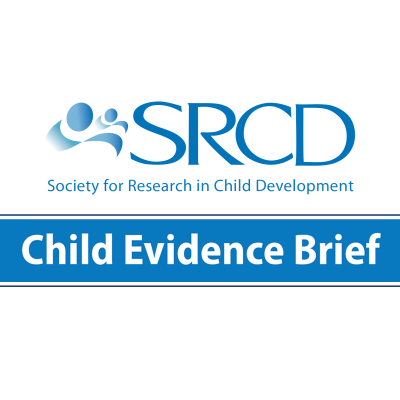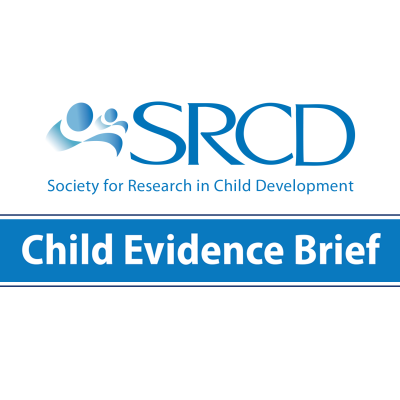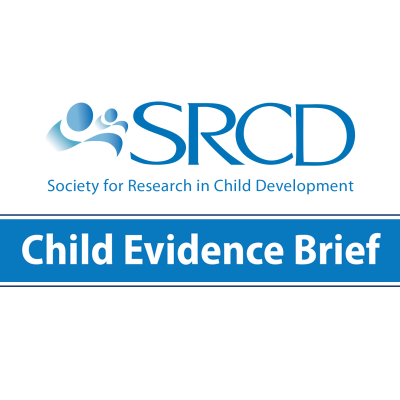Improving Early Mathematics Education May Enhance Children’s Academic Success
Social Policy Report Brief, Volume 22, Issue 1
Why Does This Matter?
Children’s knowledge of math concepts when they enter school is a strong predictor of later achievement, even stronger than early reading ability. But the teaching of early math tends to be rare and of poor quality, and American youngsters routinely perform poorly in math against their East Asian counterparts. Part of the solution may lie in effective early math education, which research shows provides a foundation for later academic success and may yield economic benefits over time. Early education may be particularly beneficial for children from low-income families, who are more likely to be at risk of school failure.
Attention to early childhood math education should be part of a comprehensive educational and social agenda that will benefit American children and the nation as a whole.
Policy Implications
Research tells us (see “What the Research Says”) that there is a clear need for early childhood math education. Children have the potential and desire to learn math. Research-based curricula to teach early math are available. Yet because most colleges and universities provide prospective teachers with few opportunities to learn about early childhood math education, and because social, emotional, and physical learning often takes precedence in the preschool classroom, early math education tends to be inadequate.
To address this situation, federal, state, and local policymakers should consider the following recommendations:
- Improve teacher training and inservice support to encourage the use of research-based curricula and to ensure that teachers understand the math, the children, the curriculum, and methods of teaching and assessment;
- Mandate and fund the use of effective, research-based curricula in all preschool settings, and support the development and evaluation of new curricula; and
- Increase funding for research on such topics as children’s potential to learn math, the best way to teach math to young children, effective ways for teachers to assess students’ learning and thinking, and valid ways to evaluate curricula.
And education program directors should consider the following recommendation:
- Teachers of early childhood math should offer a rich variety of objects and materials to set the stage for math learning, and initiate and guide explorations of complex topics related to the everyday world. Teachers also should take advantage of teachable moments during children’s play, and actively introduce math concepts, methods, and language through planned instruction.
What the Research Says
- From infancy to age 5, young children develop “everyday mathematics”—informal ideas of more and less, taking away, shape, size, location, pattern, and position. Everyday math is both concrete and abstract, involves skills and concepts, and may be learned both spontaneously and with assistance from adults.
- Children are capable of learning more and deeper mathematics than usually assumed.
- Low- and middle-income children show few if any differences in the everyday math they use in free play. Both groups solve informal addition and subtraction problems using similar strategies and concepts. But low-income children generally perform at a lower level than middle-income children, because of difficulties with language and expressing their thinking.
- Research on the views of early childhood teachers suggests that these teachers believe social emotional learning is more important than literacy, which they see as more important than math. Most preschool teacher preparation programs focus more on literacy than math.
Facts at a Glance
- Math education for 3- to 5-year-olds is not new; early childhood math education has been a key part of preschool and kindergarten practice at various times during the last 200 years, with interest waxing and waning in response to social conditions.
- Head Start has begun to strengthen its mathematics curriculum, and states like Texas and New Jersey are implementing new early childhood math programs, especially for low-income minority children.
- The leading professional organizations in the field recommend that early math instruction cover the “big ideas” of mathematics in such areas as number and operations, geometry (shape and space), measurement, and “algebra” (particularly pattern), within learning contexts that promote problem solving, analysis, and communication.
This brief summarizes a longer Social Policy Report, "Mathematics Education for Young Children: What It is and How to Promote It," by Herbert P. Ginsburg, Jacob H. Schiff Professor of Psychology and Education at Teachers College, Columbia University; Joon Sun Lee, Assistant Professor in Early Childhood Education at Hunter College of The City University of New York; and Judi Stevenson Boyd, Research Project Coordinator for the National Institute for Early Education Research and a doctoral student at Teachers College, Columbia University.


